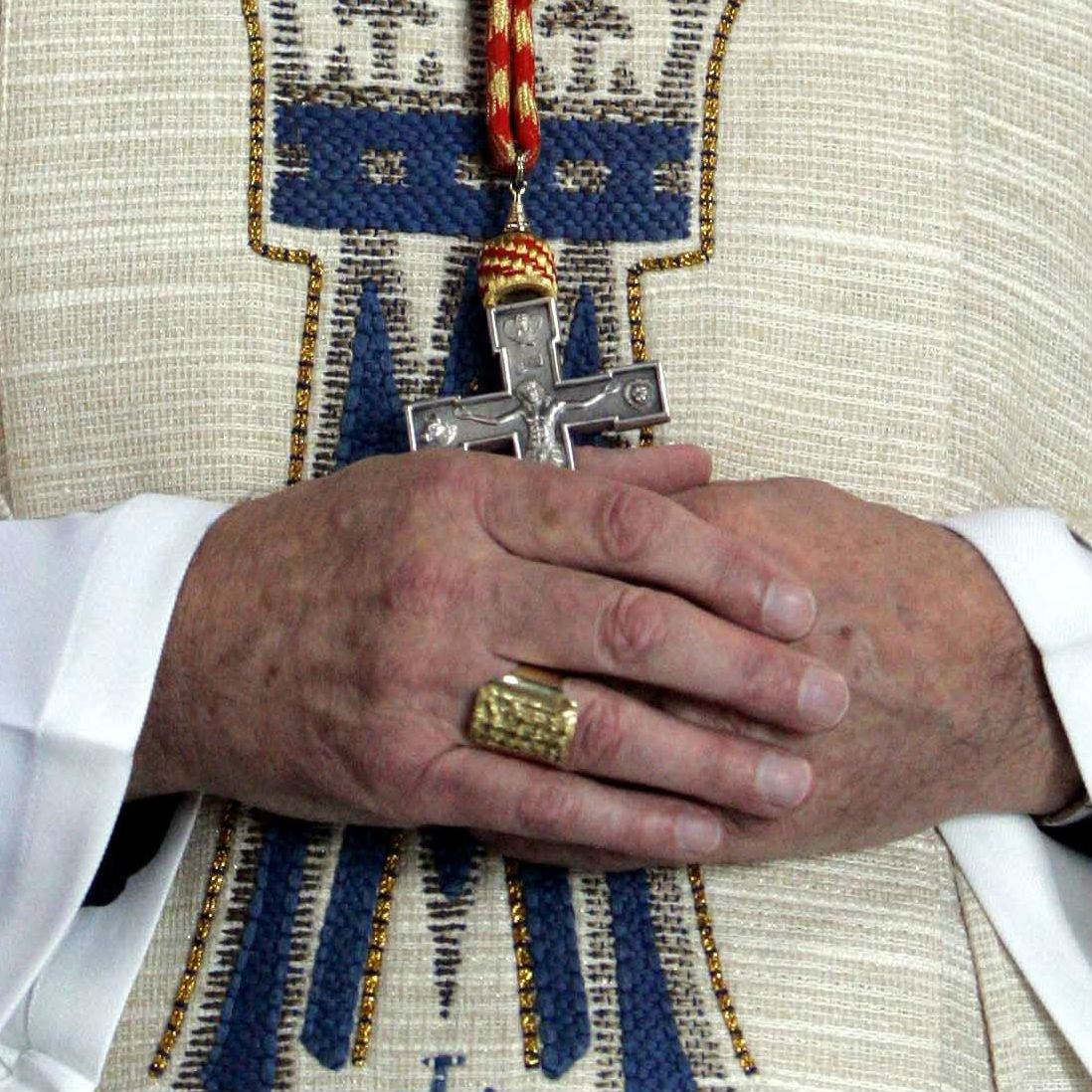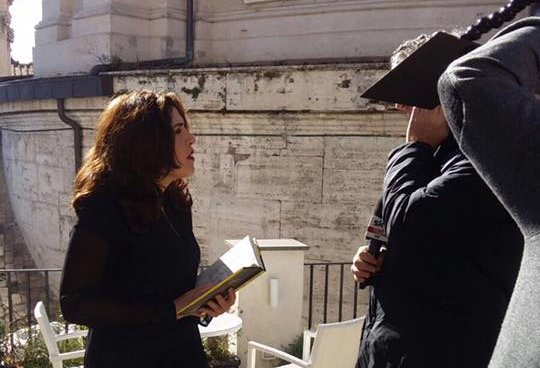It’s been a Vatican saga including money, sex and farce-like skulduggery such as mobile phones being smuggled in religious books hollowed out for the purpose and the mysterious disappearance of confidential financial documents.
Now the latest episode in a drama that has evoked somewhat far-fetched comparisons with the notorious Borgia family is a new tell-all book by Francesca Chaouqui, the 35-year-old public relations consultant who was put on trial for leaking sensitive financial documents about the Holy See.
While “Nel Nome di Pietro" (In the Name of Peter) provides fuel to the intrigue around Vatileaks II, what the book really shows is that Pope Francis’ reform of Vatican finances has been more about power than balance sheets.
And Chaouqui’s story is really a lament about her loss of influence. Back in 2013 the young executive had been named to the important papal commission tasked with overhauling the Holy See’s financial administration. As a 30-something woman in a male-dominated Vatican her appointment was no mean feat and she served alongside her now former friend Spanish priest Mgr Lucio Vallejo Balda.
This was a top-level body reporting directly to the Pope; a commission that gave its members unprecedented access to sensitive material revealing how money was looked after inside the closed world of the Vatican. It provided an intoxicating taste of power but did it go to their heads? Alarm bells rang when pictures of Chaouqui and Balda appeared of them taking part in an extravagant banquet on top of a prelate’s flat during the canonisation of John Paul II. Chaouqui allegedly “hosted” the occasion while Balda was seen distributing communion to attendees.
This displeased the Pope and after their work on the commission finished the two were not given jobs implementing the reforms. From privileged insiders they were now on the outside; after being players they were just observers.
Fast forward to seven months ago and Chaouqui and Balda were convicted for leaking confidential material with which two journalists published books. During the trial Balda turned on Chaouqui accusing her of being a seductress - she refuted his claim by saying he was gay and her new book makes more allegations about his private life.
In her book Chaouqui says the commission she served on was dysfunctional while members politicked behind one another’s backs for greater prominence. Written in a diary format “In the Name of Peter” tries to recast her stigmatised image as the femme fatale to that of an idealistic reformer thwarted by special interests.
When I interviewed Chaouqui about her plans to write the book more than a year ago she stressed that wanted to "bring things into the sunlight and show that I’m not guilty”. Her frustration at losing power is, however, evident in her criticisms of Cardinal George Pell, the Pope’s financial chief while also hinting at the crucial sticking point over Holy See money management.
Chaouqui says the Australian cardinal has squandered the opportunity for reform and that he and his allies have a misguided vision to turn the Vatican into an asset management giant closely linked to big global corporations.
Pell has also been unfairly targeted in a book on sexual abuse written by Emiliano Fittipaldi - one of the journalists Choauqui and Balda leaked documents to - and who also obtained leaked documents revealing the cardinal’s personal expenses.
Regarding the economy, the cardinal’s supporters say he has thrown everything at trying to ensure the Holy See is compliant with international financial standards, such as proper budgeting and reporting, moves that have come up against internal resistance.
His thwarted plan to have the Vatican audited by one of the world’s biggest accountancy firms, PricewaterhouseCoopers, has laid bare the difficulties with Chaouqui’s wariness of getting too close to big global firms is shared by others in the Vatican.
This touches at the the heart of the tension over financial reforms. On the one hand there is Pell and his allies who argue the Holy See should follow international standards on accounting, budgeting and everything else. This will stop the corruption and end the scandals.
The opposing argument is that the Church should not be treated like another global corporation and that the Holy See is a sovereign entity under international law. Many in this camp are in favour of transparency but wary of handing too much power to external consultants.
Nevertheless, credit should be given to Francis and Pell to what has been achieved so far: departments have budgets, the “pools of darkness” have gone and the Vatican bank is no longer an enticing proposition for those wishing to launder money. But this is a work in progress: it will take years before it can be completed.
The most intriguing detail of Chaouqui’s book and worthy of consideration for inclusion in a Dan Brown novel is her revelation about having a source inside the Vatican’s powerful Secretariat of State who relayed information to her by leaving secret notes inside a confessional.
Inside Rome’s San Luigi dei Francesi church where Caravaggio’s famous "Call of St Matthew" hangs she picked up pieces of paper that said her house was about to be searched while another explained Francis was irritated by the trial.
The drama and intrigue of Vatileaks II has been a huge distraction for the Pope’s financial reforms so it’s no wonder he has been irritated. But it also serves as a sober reminder that in Rome unexpected scandals can erupt that have the power to knock even the most sure-footed popes off their stride.




 Loading ...
Loading ...